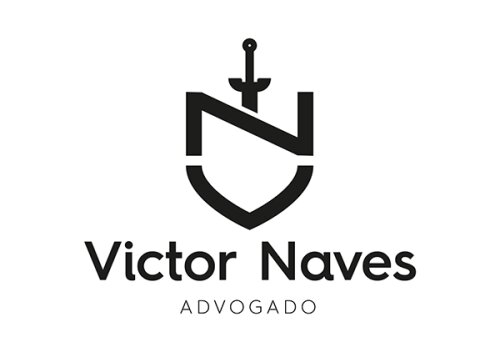Best Native People Lawyers in Goiânia
Share your needs with us, get contacted by law firms.
Free. Takes 2 min.
List of the best lawyers in Goiânia, Brazil
About Native People Law in Goiânia, Brazil
Native People, known as "Povos Indígenas," hold an important place in the cultural and historical fabric of Brazil, including the city of Goiânia. While much of the Indigenous population resides in rural or demarcated territories, Goiânia is a growing urban center where many Indigenous individuals and families live, work, and study. Native People law in Brazil is shaped by the Federal Constitution, national legislation, and the international conventions to which Brazil is a signatory. In Goiânia, legal issues concerning Native People often involve land rights, access to healthcare, education, protection of cultural heritage, and protection against discrimination.
Why You May Need a Lawyer
Seeking legal support is important for Native People and their allies in Goiânia who face challenges such as:
- Land ownership and demarcation disputes, especially regarding Indigenous territories or land traditionally occupied by Indigenous groups.
- Access to public services such as healthcare, education, and social welfare programs, including cases of denial or inadequate provision.
- Discrimination or human rights violations in workplaces, educational institutions, or public spaces.
- Legal recognition of Indigenous identity, community organizations, or traditional activities.
- Protection of cultural heritage and safeguarding traditional knowledge and practices against misuse or infringement by third parties.
- Criminal defense or representation as Indigenous People may face unique circumstances when interacting with the criminal legal system.
Local Laws Overview
Federal law provides the foundation for Indigenous rights throughout Brazil, but it is implemented locally in places like Goiânia. Key aspects include:
- The Federal Constitution of 1988 recognizes the original rights of Indigenous People to the lands they traditionally occupy. State and municipal authorities have the duty to respect and protect these rights.
- The Statute of the Indian (Lei 6.001/1973) regulates various aspects such as education, land, and health concerning Native People.
- Municipal and state programs may supplement federal guarantees by providing targeted social and cultural programs for the Indigenous community.
- Local laws require that any actions affecting Indigenous land or interests, such as infrastructure development or cultural events, must involve consultation with Indigenous representatives.
- Specific protections are established against acts of discrimination based on ethnicity or tradition, with legal recourse available through local courts.
Frequently Asked Questions
What legal rights do Indigenous People have in Goiânia?
Indigenous People have the right to maintain their customs, cultures, languages, lands, and ways of social organization. Brazilian law also guarantees protection against discrimination and ensures access to healthcare and education.
Can Indigenous People own property in Goiânia?
Indigenous lands are legally recognized as belonging to their respective Peoples, held collectively, and are not subject to sale or mortgage. Outside of recognized territories, individuals can own property under general Brazilian property laws.
How can an Indigenous person get access to public services in Goiânia?
Indigenous People are entitled to the same public healthcare, education, and social benefits as any citizen, with additional programs aimed at respecting cultural differences. In case of denial or difficulty, legal help may be needed.
What protections exist against discrimination?
Brazilian law includes provisions both in the Constitution and in specific statutes to prevent racial or ethnic discrimination, applying penalties for such offenses. Goiânia's authorities are obliged to enforce these protections.
Are there special schools or educational support for Indigenous students in Goiânia?
There are policies to support the inclusion of Indigenous students in public schools, respecting their cultural and linguistic differences. Some programs offer bilingual education or tailored support, but implementation varies.
Can Indigenous People participate in local government or decision-making?
Indigenous People can vote, run for office, and participate in civil society as any Brazilian citizen. Legal mechanisms require authorities to consult Indigenous representatives on matters affecting their communities.
What should I do if I experience discrimination or rights violations?
Document the incident and seek support from a lawyer or relevant Indigenous organization. You can file complaints with local authorities or the Public Prosecutor's Office (Ministério Público).
How are Indigenous cultural practices protected?
Federal and state laws protect Indigenous cultural expressions, rituals, and traditional knowledge. Unauthorized use or exploitation of such practices can be challenged legally.
What role does the Fundação Nacional dos Povos Indígenas (FUNAI) play?
FUNAI is a federal agency responsible for protecting Indigenous rights, demarcating Indigenous lands, and providing assistance in legal and social matters. They can offer guidance and support in Goiânia-related issues.
Where can I find legal aid or counseling in Goiânia?
You may contact the Public Defender’s Office (Defensoria Pública), Indigenous advocacy groups, or legal clinics at universities. Some organizations offer pro bono or low-cost services targeted at Native People.
Additional Resources
- FUNAI (Fundação Nacional dos Povos Indígenas) - Federal agency providing assistance and information for Native People.
- Defensoria Pública do Estado de Goiás - Offers free legal aid for qualified individuals, including Indigenous People.
- Ministério Público Estadual e Federal - Prosecutorial body where rights violations can be reported and addressed.
- Indigenous associations and collectives - These groups provide advocacy and cultural support for Indigenous communities living in urban and rural areas of Goiânia.
- Legal clinics at universities - They often assist with Indigenous rights and public law issues as part of their civic outreach programs.
Next Steps
If you require legal assistance related to Native People issues in Goiânia, here are steps to follow:
- Document your situation - Gather all relevant documents, proof, and any communications related to your case or question.
- Contact Indigenous organizations or legal aid providers listed above for initial guidance.
- Seek a consultation with a specialized lawyer or the Public Defender’s Office to discuss your rights and options.
- Report any criminal or rights violation directly to local authorities or through advocacy groups to ensure immediate action.
- Stay informed about your rights, processes, and community resources to advocate for yourself or your community.
Understanding your legal rights and knowing where to find support or representation is key. With resources and legal professionals available in Goiânia, Native People have channels to pursue justice and protect their interests.
Lawzana helps you find the best lawyers and law firms in Goiânia through a curated and pre-screened list of qualified legal professionals. Our platform offers rankings and detailed profiles of attorneys and law firms, allowing you to compare based on practice areas, including Native People, experience, and client feedback.
Each profile includes a description of the firm's areas of practice, client reviews, team members and partners, year of establishment, spoken languages, office locations, contact information, social media presence, and any published articles or resources. Most firms on our platform speak English and are experienced in both local and international legal matters.
Get a quote from top-rated law firms in Goiânia, Brazil — quickly, securely, and without unnecessary hassle.
Disclaimer:
The information provided on this page is for general informational purposes only and does not constitute legal advice. While we strive to ensure the accuracy and relevance of the content, legal information may change over time, and interpretations of the law can vary. You should always consult with a qualified legal professional for advice specific to your situation.
We disclaim all liability for actions taken or not taken based on the content of this page. If you believe any information is incorrect or outdated, please contact us, and we will review and update it where appropriate.









